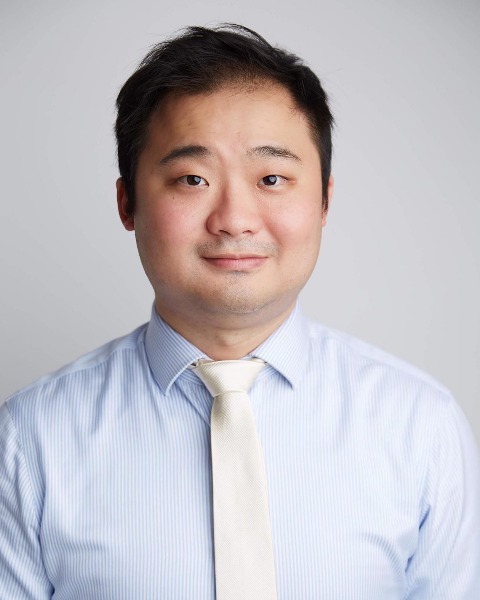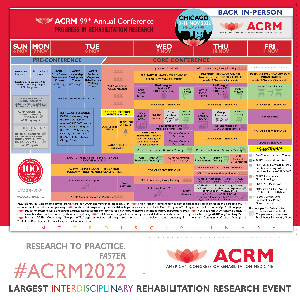Back
Brain Injury
Use of levodopa or bromocriptine predicts the risk of post-traumatic seizures
Wednesday, November 9, 2022
9:45 AM – 10:45 AM
Location: VIrtual Recording

Nicodemus E. Oey, MD., PhD.
Senior Resident in Rehabilitation Medicine
Singhealth Residency
Singapore, Singapore- SP
Shrikant Pande
Senior Consultant
Department of Rehabilitation Medicine, Changi General Hospital, Singapore
Presenting Author(s)
Non-presenting Author(s)
Research
Objectives: To investigate potentially modifiable risk factors that predispose patients to developing post-traumatic brain injury seizures.
Design: A retrospective analytical study reviewing the hospital records and outpatient follow-up of post-TBI patients with a median follow-up period of 59 months.
Setting: Single-center analysis of patients admitted with Traumatic Brain Injury in Changi General Hospital, Singapore from March 2008 to October 2017.Participants: Of the 151 patients identified, 10 were excluded due to incomplete follow-up records and/or a past history of seizures. Of the remaining 141 patients, 33 (24.4%) patients developed seizures during long-term follow up post-TBI.
Interventions: Clinical presentation on admission, mechanism of injury, initial Glasgow coma scale (GCS), neurosurgical and medical management, biochemical studies and all medications prescribed were thoroughly tabulated. All TBI patients were eventually referred to inpatient rehabilitation services and reviewed by a multidisciplinary team throughout the inpatient period and during their subsequent outpatient follow-up, which includes further rehabilitation program, neuropsychological review and return-to-work assessments.
Main Outcome Measures: Any seizure occurring within the initial 2-week period and beyond up to a mean follow-up period of 59 months post-initial TBI was documented.
Results: In the univariate analysis, statistically significant associations with post-TBI seizures were shown with the use of neurostimulant medications including levodopa or bromocriptine (p=0.001), which was also reflected in the multivariate analysis (OR=10.9,95%CI:3.5-34.2, p= < 0.001).
Conclusions: Due to increased risk of seizures, patients who received neurostimulants or neurosurgical interventions should be monitored for post-TBI seizures. This finding will need to be investigated in future prospective studies.
Author(s) Disclosures: We confirm that we have read ACRM’s position on issues involved in ethical publication and affirm that this report is consistent with those guidelines.
Objectives: To investigate potentially modifiable risk factors that predispose patients to developing post-traumatic brain injury seizures.
Design: A retrospective analytical study reviewing the hospital records and outpatient follow-up of post-TBI patients with a median follow-up period of 59 months.
Setting: Single-center analysis of patients admitted with Traumatic Brain Injury in Changi General Hospital, Singapore from March 2008 to October 2017.Participants: Of the 151 patients identified, 10 were excluded due to incomplete follow-up records and/or a past history of seizures. Of the remaining 141 patients, 33 (24.4%) patients developed seizures during long-term follow up post-TBI.
Interventions: Clinical presentation on admission, mechanism of injury, initial Glasgow coma scale (GCS), neurosurgical and medical management, biochemical studies and all medications prescribed were thoroughly tabulated. All TBI patients were eventually referred to inpatient rehabilitation services and reviewed by a multidisciplinary team throughout the inpatient period and during their subsequent outpatient follow-up, which includes further rehabilitation program, neuropsychological review and return-to-work assessments.
Main Outcome Measures: Any seizure occurring within the initial 2-week period and beyond up to a mean follow-up period of 59 months post-initial TBI was documented.
Results: In the univariate analysis, statistically significant associations with post-TBI seizures were shown with the use of neurostimulant medications including levodopa or bromocriptine (p=0.001), which was also reflected in the multivariate analysis (OR=10.9,95%CI:3.5-34.2, p= < 0.001).
Conclusions: Due to increased risk of seizures, patients who received neurostimulants or neurosurgical interventions should be monitored for post-TBI seizures. This finding will need to be investigated in future prospective studies.
Author(s) Disclosures: We confirm that we have read ACRM’s position on issues involved in ethical publication and affirm that this report is consistent with those guidelines.
Learning Objectives:
- Upon completion, participant will be able to describe the risk factors for the occurrence of post-TBI seizures.
- Upon completion, participant will be able to define the use of neurostimulant medications in the TBI population.
- Upon completion, participant will be able to list the other known confounders in predicting post-TBI seizures.

.jpg)
